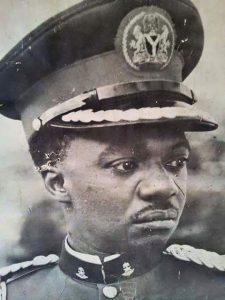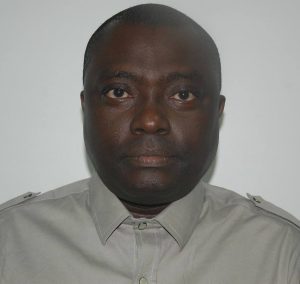By Adagbo ONOJA
It is a phenomenon to be theorised: Mallam Yakubu Aliyu’s reclusivity. Of course, he is entitled to his privacy but it is debatable if that right can be granted someone who has domesticated Economics the way he has. Given the ‘coloniality of being’ under which we all labour in Africa, domestication of any realm of knowledge is an exceptionalism that must be put to public service.
And Yakubu Aliyu should, therefore, have been among those on the list of the flagbearers of exceptionalism peculiar to Bayero University, Kano (BUK) as reported in a recent Intervention piece. But given his stance generally on publicity, his name was deliberately not included. Otherwise, a Rhodes Scholar in Oxford straight from BUK was fit and proper to be on the list. On top of that, he became a lecturer because of excellence.

What better ‘news from nowhere’ for a trainee reporter to surface in the newsroom with an interview with Gen Hassan Katsina, the first and only former military governor of the north, ex-COAS and a former Dep COS/SHQ as whatever he said could be the news of the moment?
This time, however, his followers are protesting why he was not included in the listing. And the debate over his reclusivity has led to a concern for a theoretical explanation of why he does not fancy media mention. That is where the theory of General Hassan Usman Katsina question is coming from. In other words, here is a proposition that Yakubu Aliyu is suffering from the syndrome. But what is the question under reference?
As new entrants into journalism in the early 1980s at Radio Nigeria, Kaduna, one of the unwritten orientation codes is the practice of ‘news from nowhere ‘. There is no official or policy document in the Radio House enunciating this doctrine of practice but it was there. It spoke and perhaps still speaks to reportorial imaginativeness that enables a reporter to return to the newsroom with either a fresh interview with a personality of some historical stature or standing in the society or anything original and serious that saves a news editor the headache of lead stories.
The shift leader with the biggest concern for ‘news from nowhere’ was, as far as I can remember, Umaru Mohammed. He is late now. Not that Timothey Bonnet or Hauwa Dangogo or Yusuf Nuhu or Simon Zamani or any other shift leader disapproved of it. Not even Alhaji Abdullaziz Oladumoye, the Controller Editorial as then. In fact, under him, the tradition eventually developed into an established practice, with a brand new motorcycle for the most proficient of us in the game. That was Joseph Edegbo whose official title was Roving Reporter. He was most useful in the night or on weekends which are usually dry moments in terms of big stories.
Anyway, one morning, myself and another chap from Programmes Department an their ubiquitous Uher in pursuit of ‘news from nowhere ‘ found ourselves in Gen Hassan Usman Katsina’s house. He sat in front of his house, surrounded by giant birds. There might have be orderlies and other people in the house but one can’t remember seeing anyone around throughout the encounter.
His mien suggested we were welcome but to our request for an interview, we got something else. The General regaled us with stories. Bird’s eye view stuff. Of course, the stories make more sense to me now than then when one was barely out of secondary school, armed with nothing other than enthusiasm about being a Radio Nigeria, Kaduna journalist. It was the happening media outlet them. Its flagship programmes such as “People and Events” or “Democracy in Action” were unmissable for many, produced as they were by staff who received grooming at the BBC in London. The way Abdulmalik Addy presented the programme added to its clout and the radio’s.
So, we got a lot of stories from the General. The one that makes most sense in this context is that story which signified that we were not being served appetizers ahead of the real stuff was when he said it used to be a debate among them why a particular politician love regular media appearances. The politician he was referring to went far in terms of top leadership in Nigeria. That was something he said was a topic in their circle where they (his camp) couldn’t understand why people appeared to love appearing in the media. What do people gain by seeking regular media appearances, he wondered.
It then became clear we were getting no interview. How does anyone persuade a potential interviewee who says the essence is pointless? My later year impression is that telling us plenty of stories was his own sophisticated way of being nice to some two young chaps from Radio Nigeria, Kaduna , a place he must have people he could call if he wanted media attention. But there is a generational or circle statement in his question: what does regular media appearance do for those who revel in it. A similar question much, much later is the one by the late Dr Stanley Macebuh who wondered what he could he be losing by not being a member of any social club. He asked the question when pressure on him from one club or another was getting much.
My thesis here then is that Mallam Yakubu Aliyu subscribes to that position about what regularity in the media gives to those who cannot do without it. Either that or a variant of it although it would seem that Gen Hassan Usman Katsina would revise himself today if he were still alive. In those days, the society was less heterogeneous. Few issues were settled through interdiscursive contestation unlike today when a 15 – year old child can say, ‘daddy, you are not right’ and goes on to prove dad wrong. The media as a space for jaw jawing was itself not as complex as today.
For that reason, the voices of those who have something to say especially on Economics and economic issues, either on account of their training or one pedigree or the other, must be sought out and made to speak. It is that democratically decided way forward that Intervention is implementing in this story. In other words, Yakubu Aliyu must begin to speak!




























